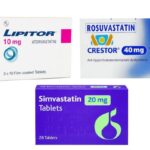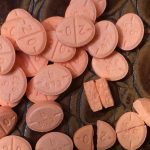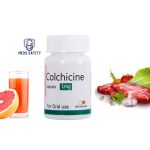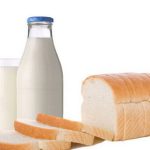List Of Foods To Avoid While Taking Statins

Statins are a class of medications primarily used to lower cholesterol levels in the blood. They are commonly prescribed to treat hypercholesterolemia (high cholesterol) and reduce the risk of cardiovascular diseases, such as heart attacks and strokes.
The history of statins dates back to the 1970s, and their development and discovery are closely linked to a natural compound found in red yeast rice. In the late 1970s, Japanese biochemist Dr. Akira Endo, working at the Sankyo pharmaceutical company, isolated a compound called mevastatin from the red yeast rice fungus (Monascus purpureus). Mevastatin was found to inhibit HMG-CoA reductase, the enzyme involved in cholesterol synthesis. This discovery laid the foundation for the development of statins as cholesterol-lowering medications.
In 1978, Dr. Endo and his team further studied mevastatin’s properties and its potential medical applications. They eventually developed a chemically modified version of mevastatin, which they named lovastatin. This became the first statin to be approved for medical use. In 1987, the United States Food and Drug Administration (FDA) approved lovastatin, sold under the brand name Mevacor, as the first commercially available statin for lowering cholesterol levels.
Following the success of lovastatin, several other pharmaceutical companies began developing their own statins. These include simvastatin, pravastatin, fluvastatin, atorvastatin, and rosuvastatin, among others. Each statin has its unique properties and varying potency, but all share the common mechanism of action of inhibiting HMG-CoA reductase. Statins rapidly gained popularity due to their effectiveness in reducing cholesterol levels and their potential to lower the risk of cardiovascular diseases. When taken in conjunction with a healthy lifestyle, statins can be highly effective in managing cholesterol levels. However, it is essential to be mindful of certain foods that may interfere with the effectiveness of statins or cause potential side effects. In this article, we will discuss a list of foods to avoid while taking statins to ensure the best possible outcomes from your medication.
How do statins work?
Before delving into the list of foods to avoid while taking statins, it is important to understand how they work. Statins work by inhibiting an enzyme called HMG-CoA reductase, which plays a key role in the production of cholesterol in the liver. Cholesterol is a type of lipid (fat) that is essential for various bodily functions, but when levels become excessively high in the blood, it can lead to the buildup of fatty deposits in the arteries (atherosclerosis). These deposits can eventually restrict blood flow and increase the risk of heart disease.
Here’s how statins function:
1. Inhibition of HMG-CoA reductase: Statins block the action of HMG-CoA reductase, the enzyme responsible for producing mevalonate, a precursor in the cholesterol synthesis pathway. By doing so, they reduce the liver’s capacity to generate cholesterol.
2. Increased LDL receptor expression: LDL (low-density lipoprotein) is often referred to as “bad cholesterol” because high levels of LDL cholesterol can lead to plaque formation in arteries. Statins not only decrease the production of cholesterol but also upregulate the expression of LDL receptors in the liver. This results in the liver being able to remove more LDL cholesterol from the blood, further reducing cholesterol levels.
3. Decreased triglycerides: In addition to lowering LDL cholesterol, statins can modestly decrease triglyceride levels, another type of fat in the blood.
4. Modulation of inflammation and plaque stability: Some studies suggest that statins may have anti-inflammatory effects and can stabilize atherosclerotic plaques, making them less likely to rupture and cause a blood clot.
It’s important to note that while statins are effective in reducing cholesterol levels, they are not a cure for high cholesterol or cardiovascular diseases. They are usually prescribed as part of a comprehensive treatment plan that includes lifestyle changes (such as a healthy diet, regular exercise, and smoking cessation) to manage cholesterol levels and overall heart health effectively.
List of Foods To Avoid While Taking Statins
The following list of foods should be avoided while taking statins to ensure the best possible outcomes from your medication:
1. Grapefruit and Grapefruit Juice: Grapefruit and grapefruit juice have long been considered healthy additions to a balanced diet due to their rich vitamin and antioxidant content. However, for individuals taking statins to manage their cholesterol levels, these seemingly innocent fruits can pose a significant concern. The compounds found in grapefruit, known as furanocoumarins, interfere with the activity of the enzyme cytochrome P450 3A4 (CYP3A4) in the intestines. CYP3A4 plays a crucial role in breaking down various medications, including certain statins. When grapefruit inhibits this enzyme, the breakdown of statins is hampered, leading to elevated levels of the medication in the bloodstream. Studies have shown that a daily glass of grapefruit juice increases blood levels of simvastatin and lovastatin by about 260% if taken at the same time. This unintended increase in statin concentration can heighten the risk of adverse effects, particularly those related to muscle complications.
One of the primary concerns associated with grapefruit-statin interactions is the potential development of rhabdomyolysis, a rare but severe condition where muscle fibers break down and release their contents into the bloodstream. Rhabdomyolysis can lead to acute kidney damage and even be life-threatening in extreme cases. Moreover, the elevated statin levels may cause muscle pain, weakness, and myopathy, which can significantly impact a patient’s quality of life and adherence to statin therapy. Liver damage is also a potential risk associated with higher statin concentrations, further emphasizing the importance of avoiding grapefruit consumption while on statin medication.
Patients taking statins should be proactive in communicating with their healthcare providers about their dietary habits and any grapefruit consumption. It is crucial for doctors to be aware of this interaction when prescribing statins and to provide appropriate guidance to patients. Individuals on statins can opt for alternative cholesterol-lowering medications or different statins that are less affected by grapefruit interactions.
2. Alcohol: Alcohol consumption is a common part of social activities for many people, but it is important to be aware of its potential interactions with statin medication. Moderate alcohol intake is generally considered to be one drink per day for women and up to two drinks per day for men. Consuming alcohol within these limits is not likely to have a significant impact on statin therapy.
However, excessive alcohol intake can strain the liver and interfere with the body’s ability to metabolize statins effectively. The liver plays a crucial role in metabolizing medications, including statins. When the liver is burdened by excessive alcohol consumption, it may not efficiently process the medication, leading to an increased concentration of statins in the bloodstream. This heightened level of statins can increase the risk of side effects, particularly related to liver function.
Moreover, heavy drinking can contribute to elevated cholesterol levels, which counteracts the purpose of taking statins. High alcohol consumption is associated with an increase in triglycerides and low-density lipoprotein (LDL) cholesterol, commonly known as “bad cholesterol,” and a decrease in high-density lipoprotein (HDL) cholesterol, known as “good cholesterol.” This unfavorable lipid profile can negatively affect cardiovascular health and counteract the benefits of statin therapy.
For individuals taking statins, it is advisable to limit alcohol consumption and stay within moderate drinking guidelines. It is essential to be honest with healthcare professionals about alcohol habits, as they can provide personalized advice and monitor the effects of statins on liver function during regular check-ups. In some cases, healthcare providers may recommend abstaining from alcohol entirely, especially if there are underlying liver issues or other medical conditions that may interact negatively with alcohol and statins.
3. High-Fat and High-Cholesterol Foods: High-fat and high-cholesterol foods can undermine the effectiveness of statin therapy, making dietary adjustments a crucial component of cholesterol management. Saturated fats and cholesterol-rich foods like fatty meats, full-fat dairy products, and processed snacks contribute to elevated LDL cholesterol levels, increasing the risk of cardiovascular diseases. To optimize the benefits of statins, individuals should prioritize heart-healthy alternatives such as lean proteins, low-fat dairy, and whole grains. Lean protein sources like fish, poultry, legumes, and plant-based proteins can provide essential nutrients without the excess saturated fats. Low-fat or fat-free dairy options offer similar nutritional benefits without raising cholesterol levels, while whole grains rich in fiber help lower LDL cholesterol and support heart health.
Minimizing the consumption of fried and processed foods, which often contain unhealthy fats and trans fats, is vital in maintaining a heart-healthy diet. Instead, incorporating healthier cooking methods and choosing unprocessed snacks like fruits, vegetables, and nuts contribute to a cholesterol-lowering diet. Moreover, increasing soluble fiber intake through foods like oats, fruits, vegetables, and legumes can further aid in reducing LDL cholesterol levels. Embracing these dietary changes alongside statin therapy can significantly improve cholesterol profiles, lower the risk of heart disease, and promote overall well-being.
Individuals are encouraged to work closely with healthcare professionals or registered dietitians to develop a personalized diet plan that complements statin therapy and meets their unique health needs. By making mindful choices and adopting a heart-healthy lifestyle, individuals can synergize the effects of statins with a balanced diet, enhancing their efforts to manage cholesterol levels effectively and safeguard cardiovascular health.
4. Fatty Fish and Omega-3 Supplements: Fatty fish, such as salmon, mackerel, and trout, are renowned for their rich omega-3 fatty acid content, which has been linked to various cardiovascular benefits. Omega-3 fatty acids have anti-inflammatory properties and can help reduce triglycerides, lower blood pressure, and improve overall heart health. However, when combined with statin therapy, it is essential to moderate the consumption of fatty fish to avoid excessively low cholesterol levels. Statins are already highly effective in lowering cholesterol, and consuming copious amounts of omega-3 fatty acids from fish could lead to an over-reduction in cholesterol levels, which may not be optimal for some individuals.
Furthermore, in addition to dietary sources, some people may turn to omega-3 supplements to further increase their intake of these beneficial fats. While omega-3 supplements can be beneficial for those who do not consume enough fatty fish, it is important to exercise caution while taking them alongside statins. Combining omega-3 supplements with statins could intensify the cholesterol-lowering effect, leading to abnormally low cholesterol levels, which are not ideal for everyone.
To strike the right balance, individuals on statins should aim to incorporate moderate amounts of fatty fish into their diet and consult with their healthcare provider before using omega-3 supplements. Healthcare professionals can assess the patient’s specific cholesterol levels, overall health, and the dosage of statins to determine the appropriate amount of omega-3 fatty acids needed without compromising cholesterol balance. By finding the right balance between omega-3 intake and statin therapy, individuals can optimize their cardiovascular health and enjoy the benefits of both without unintended consequences.
5. Red Yeast Rice Supplements: Red yeast rice supplements have gained popularity as a natural alternative for lowering cholesterol levels due to their monacolin K content. Monacolin K is a compound that closely resembles lovastatin, a statin medication commonly prescribed to manage cholesterol. While red yeast rice supplements may offer potential cholesterol-lowering benefits, combining them with statins can be risky and should not be done without proper medical supervision.
The similarity between monacolin K and lovastatin means that red yeast rice supplements can have a similar mechanism of action as statins in inhibiting HMG-CoA reductase, the enzyme responsible for cholesterol synthesis. This can lead to a reduction in cholesterol levels. However, the use of red yeast rice supplements alongside statins can result in an unintended overdose of statin-like compounds, significantly increasing the risk of adverse effects.
The most concerning side effect of combining red yeast rice supplements with statins is the potential for muscle pain and weakness, known as myopathy. The simultaneous intake of these compounds can overwhelm the body’s ability to metabolize and eliminate them, resulting in the accumulation of statin-like substances in the bloodstream. This can strain the muscles and lead to myopathy, which can be uncomfortable and, in severe cases, may lead to rhabdomyolysis, a serious condition where muscle breakdown releases harmful substances into the bloodstream, risking kidney damage.
Additionally, the liver plays a crucial role in metabolizing both red yeast rice supplements and statins. The combined use of these substances can put undue stress on the liver, potentially causing liver problems and elevating liver enzymes, a sign of liver damage.
For these reasons, it is of utmost importance to avoid using red yeast rice supplements alongside statins without consulting a healthcare provider. If individuals are interested in incorporating natural alternatives to manage cholesterol levels, it is essential to discuss their intentions with a medical professional. The healthcare provider can evaluate the individual’s health status, current medications, and cholesterol levels to make informed recommendations about suitable options that complement statin therapy without compromising safety and effectiveness.
6. High-Fiber Foods with Medication: Fiber-rich foods offer numerous health benefits, including supporting heart health and promoting healthy digestion. However, when taken simultaneously with medications, including statins, high-fiber foods can interfere with their absorption and effectiveness. It is essential to be mindful of the timing of consuming high-fiber meals and taking statins to ensure that the medication is absorbed optimally.
Fiber has the property of slowing down the passage of food through the digestive system. When high-fiber foods are ingested along with statins, they can impede the absorption of the medication in the small intestine, potentially reducing its effectiveness. To avoid this interaction, it is advisable to take statins at least a couple of hours before or after consuming high-fiber meals.
Separating the timing allows the statin medication to be absorbed without interference from fiber, ensuring that it reaches the bloodstream at the appropriate concentration to effectively lower cholesterol levels. This precaution is particularly crucial for individuals with high cholesterol who rely on statins as a primary means of managing their cholesterol levels and reducing the risk of cardiovascular diseases.
To enjoy the health benefits of a high-fiber diet while taking statins, individuals can plan their meals and medication schedules strategically. Taking statins during meals that are lower in fiber or at a different time than high-fiber meals can help maintain optimal medication absorption while still benefitting from a fiber-rich diet.
Conclusion
When prescribed statins, it is crucial to follow a heart-healthy diet and avoid certain foods that may interfere with their effectiveness or cause potential side effects. Always consult with your healthcare provider or a registered dietitian to create a personalized diet plan that complements your statin therapy and promotes overall cardiovascular health. By being mindful of the foods to avoid while taking statins, you can maximize the benefits of your medication and lower the risk of heart disease effectively.





